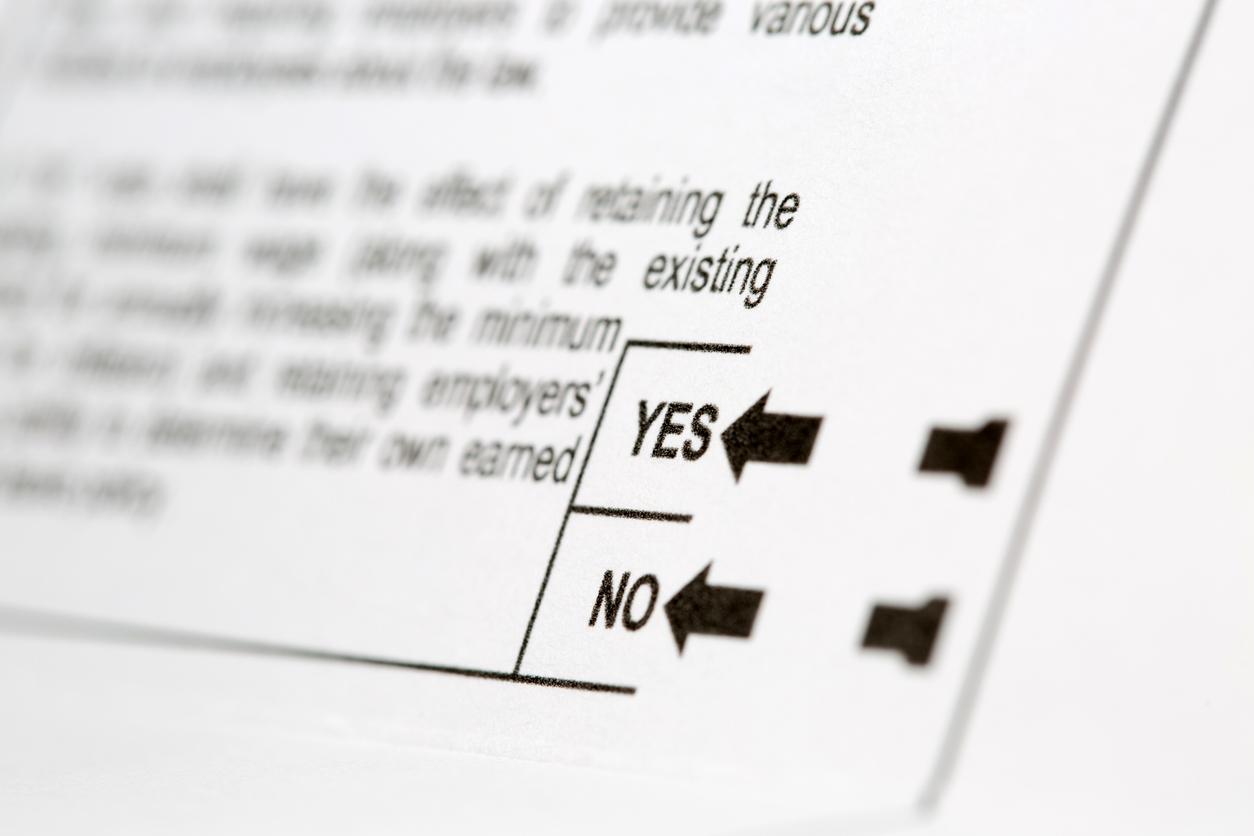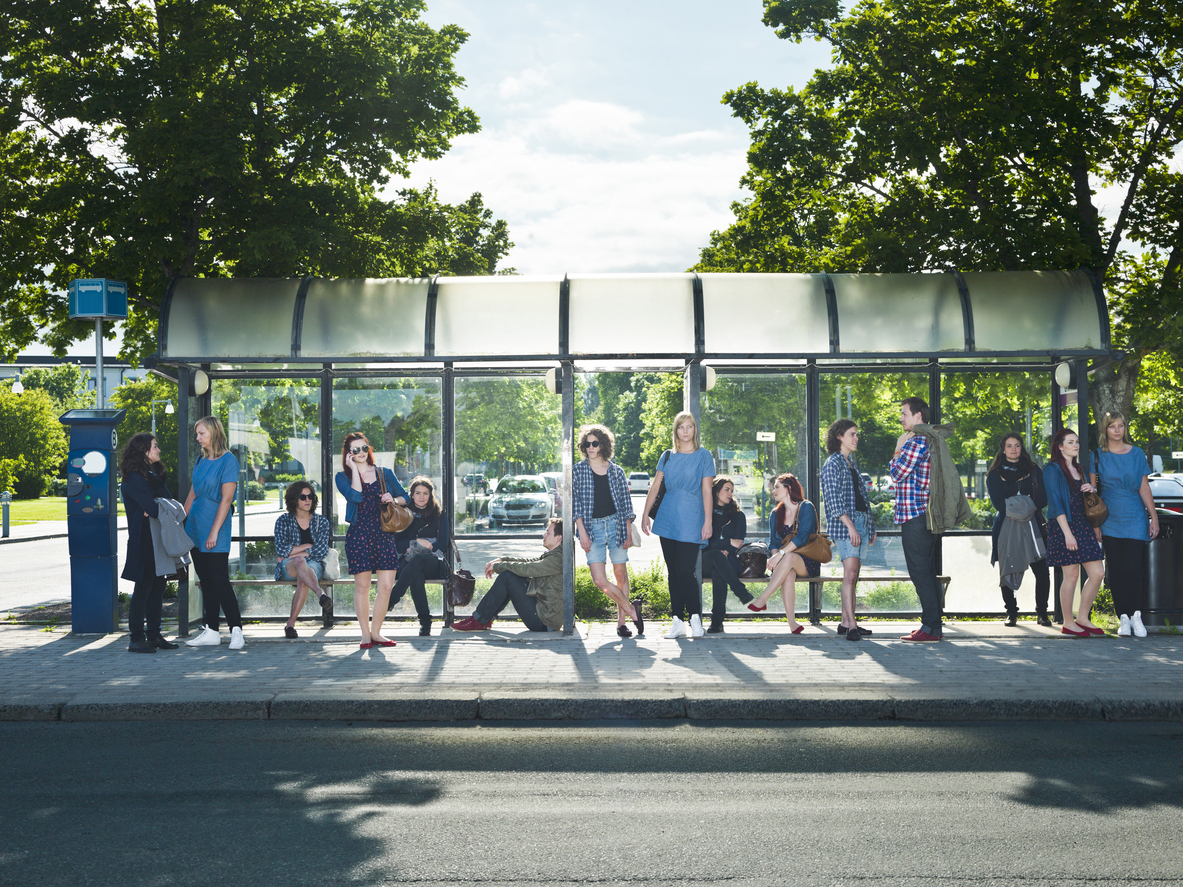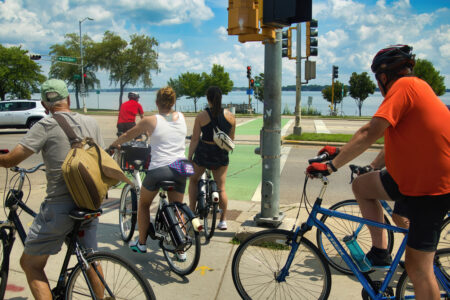
Share On Social!
During the 2018 midterm election cycle, U.S. voters passed 17 of 20 public transportation ballot measures—two remain undecided.
Over the past two decades, Americans have voted in favor of public transportation more than 70% of the time, according to Josh Cohen, campaign director at the Center for Transportation Excellence.
Earlier in 2018 during the primary elections, voters passed 13 of 16 measures supporting public transit; during the 2017 general election, voters passed seven of eight measures; and during the 2016 general election, voters passed 33 of the 49 measures.
Elected leaders at the local and state level are getting the hint and increasingly addressing public transit issues while campaigning.
“These candidates know that public transportation is an issue that wins bipartisan support, creates jobs and grows the economy, helps reduce poverty and connects communities,” Cohen said.
Public transportation is huge for quality of life.
For example, a 2017 voter-approved sales tax increase in Ramsey County, Minn., is contributing to a bus rapid transit line that will connect 522,000 people to healthcare and 31,000 jobs.
Before election day, Cohen had reviewed and was geared up to track the 22 local and state transportation ballot measures during the 2018 election cycle.
Here are a few examples of public transit ballot measures that passed, were defeated and were too close to call.
Passed
 A penny for transportation. In Broward County, Florida (29.7% Latino), voters approved a one-cent increase in the sales tax, for a 30-year period. The sales tax is expected to raise $357 million in the first year and $16 billion dollars over the next 30 years to fund transportation projects, like electric buses, light rail, bike lanes, sidewalks and improvements to intersections. Broward County commissioners will create a nine-member oversight board to determine how the county will spend the funds, according to Broward County.
A penny for transportation. In Broward County, Florida (29.7% Latino), voters approved a one-cent increase in the sales tax, for a 30-year period. The sales tax is expected to raise $357 million in the first year and $16 billion dollars over the next 30 years to fund transportation projects, like electric buses, light rail, bike lanes, sidewalks and improvements to intersections. Broward County commissioners will create a nine-member oversight board to determine how the county will spend the funds, according to Broward County.
Repealing a sunset clause. Voters in four counties in New Mexico approved removing the 2024 sunset clause on the one-eighth of one percent (1/8%) gross receipts tax. The tax was first approved in 2008 to support transit operations and raises about $7.8 annually to finance the operational costs and capital expenditures of passenger transportation in the North Central Regional Transit District serving Santa Fe (51.0% Latino), Rio Arriba (71.3% Latino), Los Alamos (17.8% Latino), and Taos (56.9% Latino) counties. Removing the sunset clause makes the 2008 tax increase permanent which accommodates better financial planning for the future and leverage for state and federal funding, according to the Albuquerque Journal.
Grassroots win. Voters in Hillsborough County, Florida (28.6% Latino) approved a one cent sales tax for 30 years for roads, sidewalks, trails, bus and transit. The tax is estimated to raise $276 million annually, with 45% going to buses and transit. Part of the proposition, a 13-member citizen oversight committee will be created to ensure the funds are spent as intended. This was a grassroots win. As part of a rarely used citizens charter amendment process, a citizens group, All for Transportation, gathered more than 50,000 signatures to put the 1-cent sales tax on the 2018 general election ballot, according to the Tampa Bay Times.
Defeated
 Twin Transit Expansion. Voters in Lewis County, Washington, (10.1% Latino) did not support 0.2% sales tax to fund the Twin Transit expansion package to expand its bus system to cover the entire county. It was unclear how much money the sales tax would generate as one city had opted out and the two largest cities in the county are already paying in, according to the Lewis County Daily Chronicle.
Twin Transit Expansion. Voters in Lewis County, Washington, (10.1% Latino) did not support 0.2% sales tax to fund the Twin Transit expansion package to expand its bus system to cover the entire county. It was unclear how much money the sales tax would generate as one city had opted out and the two largest cities in the county are already paying in, according to the Lewis County Daily Chronicle.
Sometimes a defeated ballot measure is a win for public transit, like in California.
Repeal gas tax. In California (39.1% Latino), voters did not support a proposition to repeal the gas tax and vehicle fee implemented in 2017. If it had passed, it would have undone the 12-cents-per-gallon tax on gasoline; 20-cents-per-gallon tax on diesel fuel; and $100 annual vehicle registration fee for zero-emission vehicles. The taxes and fees are expected to raise more than $54 billion over the next ten years for transportation projects across the state. Additionally, the proposition would have required voter approval for California lawmakers to impose increase or extend fuel taxes or vehicle fees in the future, according to Curbed San Francisco.
Undecided
More buses, more often. Voters in Flagstaff, Arizona (19.3% Latino) did not approve an 11-year 0.15% increase in the sales tax rate for public transportation. The proposition is expected to generate $41 million over 11 years and would increase frequency of buses on most routes from every 30 minutes to every 15 to 20 minutes during the week and from every 60 minutes to every 30 minutes on weekends. Service hours would also run later on all routes, according to the City of Flagstaff.
Get us moving. Nearly two-thirds of voters in San Mateo County, California (24.5% Latino)supported a half-cent sales tax for 30 years to fund road improvements, transit services, and congestion relief. However, the ballot measure requires two-thirds approval, thus the results are too close to decide. The tax is expected to generate $80 million annually, according to the San Mateo Daily Journal.
Read more about all 22 local and state public transportation ballot measures from American Public Transit Association (APTA).
It’s important to note that there were 138 transportation ballot measures during the midterms, excluding local road millages in Michigan and Ohio, according to ENO Center for Transportation.
Although only 22 were primarily for public transportation, additional ballot measures allocated multimodal funding for transit and/or pedestrian and bicycle improvements. For example, although primarily road ballot measures, voters in Austin, Texas (34.5% Latino) approved $160 million for transportation infrastructure, which includes funding for active transportation and pedestrian safety improvements improvements; and voters in Philadelphia, Pennsylvania (13.8% Latino) approved $181 million for capital projects, to include $5 million for transit.
Brush up on your civic literacy and learn more about ballot measures from Ballotpedia.
Keep an eye for 2019 special election and/or primary election ballot measures related to public transit in your area.
Follow and support public transit advocates and attend advisory board and oversight committee meetings.
Beyond Transportation, into Sugary Drinks
But before the U.S. midterm election Nov. 6, 2018, Big Soda giants like Coke spent millions on deceptive marketing campaigns to fight sugary drink tax measures, according to reports by NPR, the New York Times, and Vox.
The result?
By The Numbers
27
percent
of Latinos rely on public transit (compared to 14% of whites).



